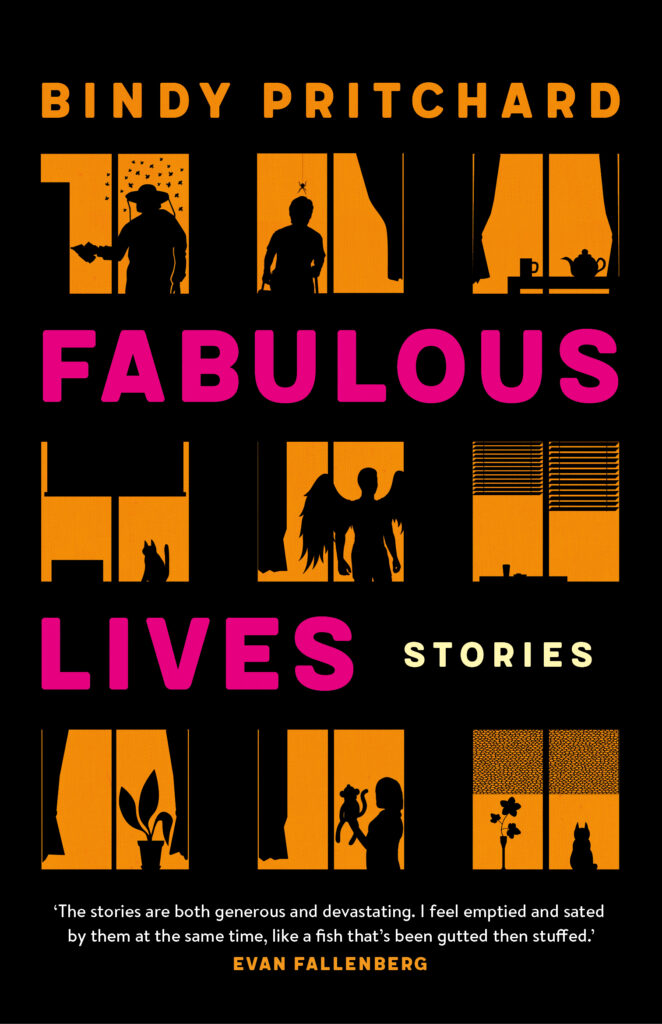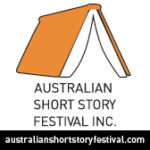Interview with Bindy Pritchard
by Sally Edwards
Fabulous Lives has a strong global presence and a rich sense of place – a lot of the stories, like Goddess of Wind and Fire and The Returning, are set in international locations but as an Australian you describe their landscapes and culture so well. How were you able to write such foreign places like Paris, Hawaii and central Germany in such vivid, knowledgeable detail?
I have travelled to or lived in all those locations which made it easier for me to create those narrative worlds. Any gaps in my memory I filled in with research or huge leaps of imagination. For example, when recreating the possible path that Louise takes from the Paris Métro, I had to ask my sister (who knows Paris better than me) about which exit she would have taken. The setting for the Hawaiian story was based on a trip I took with the family walking across the old lava fields on the Big Island though the characters in the story are completely made up (as is the disappointing sex scene at the end!). I have tried writing setting purely based on internet research and those attempts end up sounding too much like tourist travelogues.
You also write of some pretty niche topics in informed detail as well, like beekeeping, ten pin bowling, and toxic sea wrack. I feel like I definitely came away from your book with knowledge about things I had never even considered before, like how important a queen excluder is. What was your research and information gathering process like when writing the book? Did you seek out experts or people you know, or did you prefer online research?
I use a combination of personal experience, talking to people and online research. My dad used to keep bees, so I had a lot of first-hand knowledge there. I worked in a bowling alley for several years so could draw on my memory of bowling leagues and the terminology used. The Sea Wrack idea came from a newspaper article I read about a build-up of toxic seaweed south of Perth. I worked for a number of years as a research writer including working on a Careers website where I interviewed people about the intimate details of their jobs. I loved delving into these other worlds and lives, something which I continue to do when researching and writing fiction.
The collection is an enlightening and touching journey through sixteen significantly different lives. How did you decide the order of the stories? Was there a particular emotional or spiritual journey you wanted the reader to experience?
Originally, I hadn’t curated the stories in any particular order. I had been approached by my publisher Caroline Wood to submit my work, so I literally just bunged everything into a word document and emailed it to her, never really expecting anything to happen with it. When the collection was accepted, the editor Jo Taylor and I worked together on the order of stories, mixing up the type of stories so that they were appropriately interspaced (based on gender, theme, point of view, age of protagonist). I personally don’t read a collection from beginning to end and tend to jump around based on what I feel like reading at the time (shortest story, weirdest title) but for a lot of readers the order is essential for the flow.
There is this common notion that in every successful short story the protagonist must grow in some way, and the central characters in each of your stories are all facing critical moments in their lives, whether it’s taking in a naked stranger or dealing with a parent’s suicide attempts. How do you feel about that theory of essential growth? And if you agree with it, was it a strategy you actively applied when developing each of the protagonists and their individual stories?
I think it was an intuitive decision to have the protagonists have moments of epiphany or enlightenment even if it is only the realisation that their life is stuck in a doomed loop (as in ‘Happy Days’ and ‘The Returning’). When I write each story, I actually have no idea what the ending will be so am just as surprised as the reader, and eager to find out what happens next. In terms of the theory of essential growth, I agree that at each stage of a person’s development there will be a crisis to overcome whether it’s a coming of age, parenting or midlife crisis. I think I cover the spectrum of developmental crises in this collection!
There is such substance to the characters and the way they face these both ordinary and extraordinary junctures in their lives. Have you found that any of the characters have had a lasting impact on you personally since writing the book?
When I was writing the stories I really cared about each character and their central dilemmas but after the book’s editing process finished, I moved very quickly onto my next writing project, and didn’t spare them a second thought. It is only through talking about the stories at writers’ events over the past three months that I have become attached again. It’s funny how my readers talk to me as if the characters are real people.
The stories change between first and third person. Were these conscious decisions? Does one in particular help you get deeper into a character that’s less familiar, or less similar, to you?
I prefer to write in third person as it gives me a greater narrative freedom and more scope to be imaginative. When I write in first person the stories tend to veer more towards memoir, and more of my personal experience begins to creep into the narrative. I choose the point of view before I begin the actual writing process and will very rarely change it.
To me, there is an overarching lesson to this book and that is that of ‘fait accompli’ (p.70), that everything happens for a reason, and that we have to accept the fabulousness of our own lives however ordinary or extraordinary they may seem. Why do you think this was this a theme that you, whether consciously or unconsciously, decided to interlace throughout each story? And is the idea of fait accompli something you apply when looking at your own life?
Yes, I think there is definitely an element of inevitability to the stories but it may be because the characters are too passive and can’t say no! And maybe there is a fait accompli motif operating through my own life, too, as I am a bit of a pushover.
Mental and physical illnesses come up a lot in the book, even if they are not the story’s focus. For example, in ‘The Shape of Things’, we learn Leonie has endometriosis, in ‘Dying’ and ‘Last Days in Darwin’ we see two perspectives on cancer, and both protagonists in ‘The Returning’ and ‘Monkey Puppet’ deal with past trauma, albeit in very different ways. These stories highlight how although illnesses, mental or physical, affect almost all of us every day, they still have a way of making us feel so alone. Why was the topic of illnesses something you wanted to explore, or shed light on, in this collection?
I wrote most of these stories after recovering from a serious health issue (and multiple surgeries) so it’s not surprising that the themes of death and illness permeate throughout the collection. It is something that I often riff on. I am interested in exploring the dynamic between the dying and the living, and how the distance between the two seems to grow greater, becoming impossible to bridge.
I also witnessed my mother’s death twenty-five years ago so that feeling of loss never really goes away and the story ‘Last days in Darwin’ draws heavily on this experience of grief.
The stories in this collection are made up of a fabric in which the real and the mythical interweave. For instance, in ‘The Shape of Things’, Leonie’s new houseguest transforms into an archangel figure and in ‘The Egg’, Bryant becomes beguiled by a giant egg. Do you really believe that all of our lives have an element of magic, or fantasy, in them? And is this something you embrace in your own everyday life?
When I was asked to write a blurb for the book, I found it difficult to summarise the stories. My editor talked about the mythical/fabulist element to some of the stories and I was genuinely surprised as I thought the stories were realist. I definitely believe in the spiritual realm and hence thought it was perfectly normal for someone to have an encounter with a fallen angel! And a couple of the odd, strange things in these stories have actually happened to me so I think that I am a bit of a ‘weirdness’ magnet and that has now become my normal.
This interview was conducted by a hardworking undergraduate student at Swinburne University.





